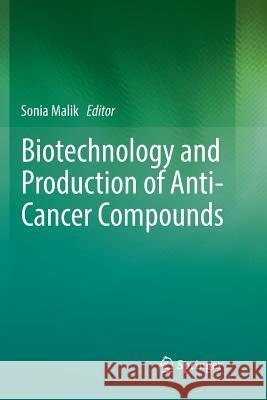Biotechnology and Production of Anti-Cancer Compounds » książka
topmenu
Biotechnology and Production of Anti-Cancer Compounds
ISBN-13: 9783319852645 / Angielski / Miękka / 2018 / 328 str.
Kategorie:
Wydawca:
Springer
Język:
Angielski
ISBN-13:
9783319852645
Rok wydania:
2018
Wydanie:
Softcover Repri
Ilość stron:
328
Waga:
0.48 kg
Wymiary:
23.39 x 15.6 x 1.83
Oprawa:
Miękka
Wolumenów:
01
Dodatkowe informacje:
Wydanie ilustrowane











